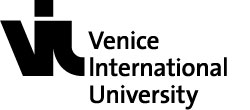
GLOBALIZATION PROGRAM
Thursday, 23 February 2017
at 5pm, Aula Magna
Opening Remarks
Amb. Umberto Vattani
President
Prof. Carlo Giupponi
Dean
Honored Guest
Prof. Massimo Inguscio
President of the National Research Council – CNR, Italy
Lectio Magistralis
Research for a Sustainable World
The Environment is our challenge and a sustainable development our goal. Many programs and agreements are being signed all over the world to preserve our Planet’s health. In this scenery, it is extremely important to focus on the proper strategy to adopt, in order to reach our objectives. Massimo Inguscio will discuss the fundamental role of synergy of expertise and research, key words to approach the future and to warrant a sustainable world.
___________________________________
Massimo Inguscio is President of the National Research Council of Italy (CNR), of which he had previously directed the Department of Physical Sciences; formerly president of the Institute of Metrological Research National (INRIM), he is member of the National Academy of Lincei and received the prestigious Légion d’Honneur acknowledgement by the French Government. His researches were awarded the Enrico Fermi prize of Italian Physical Society, the Herbert Walther Award of the Optical Society of America and the German Physical Society. Prof. Inguscio has been included in the Thomson-Reuters list of "most influential scientific minds" for his activities in atomic physics research close to absolute zero. Short bio and scientific activity
Wednesday, 23 November 2016
at 5 pm, room 9-A
Boredom and Venice
Mariusz Finkielsztein, University of Warsaw
The Myth of Humanitarianism: Migrant Deservingness and Neoliberal Reason
Sébastien Chauvin, University of Lausanne
___________________________________
Opening Ceremony of Fall 2016 Term
Wednesday, 7 September 2016 - 5pm, Aula Magna
Lectio Magistralis
'Venice, a Cosmopolitan City. The Places of the Minorities and the Jewish Ghetto'
Prof. Donatella CalabiDirector of the Scientific Committee for the Quincentennial of the institution of the Ghetto of Venice
and curator of the exhibition 'Venice, the Jews and Europe 1516-2016' *
Read more...
Download the invitation
* Venice, Palazzo Ducale – Doge’s Apartment, 19 June – 13 November 2016. Link to the exhibition
___________________________________
VIULECTURES 1|16
Wednesday, 20 April 2016 - at 5 pm, room 1-G
The Arab Uprisings: a comparative analysis
Mounia Bennani-Chraïbi, University of Lausanne
Monday, 2 May 2016 - at 5 pm, room 5-X
Spectacular Ruins: Photography as Cultural Narrative
Miles Orvell, Temple University, Philadelphia
___________________________________
Opening Ceremony of Spring 2016 Term
Thursday, 18 February 2016 - 4pm, Aula Magna
Leading the energy transition: integrating sustainability into a “progressive” business model
Dr. Andrea Valcalda,
Head of Sustainability, Enel SpA
Fusion: Energy for tomorrow, opportunities for today
Prof. Piero Martin,
Department of Physics and Astronomy, Università degli Studi di Padova
VIULECTURES are available as podcasts here.
Archive 2015 | 2014 | 2013 |2012 | 2011 | 2010 | 2009 | 2008 | 2007 | 2006

VIU also organizes two VIULECTURES series each year in which guest speakers debate interesting, topical issues. These events are open to the public.
Wednesday, 23 November 2016
at 5 pm, room 9-A
Mariusz Finkielsztein, Faculty of Philosophy and Sociology, University of Warsaw
Boredom and Venice
 Boredom is strongly linked to Venice. First of all, it is the native city of Giacomo Casanova (1725), one of the world’s most famous strugglers with boredom in Western history. A second connection is Josif Brodskij, one of the best known boredom essayists, who was totally in love with this city. However, boredom is widespread and can affect everyone, everywhere. Mostly neglected and underestimated throughout the 20th century and the beginning of the 21st Century, boredom has increasingly been a focus of studies in different disciplines: it is one of fundamental concepts in philosophical existentialism, an influential emotion directing social behaviour (both at work and during leisure), an important issue in psychology, a state believed to have a great contribution to social change and to be essential for human constitution. The lecture aims to provide an overview on boredom studies throughout the scientific disciplines and to show the significance of this frequently hidden and rejected emotion.
Boredom is strongly linked to Venice. First of all, it is the native city of Giacomo Casanova (1725), one of the world’s most famous strugglers with boredom in Western history. A second connection is Josif Brodskij, one of the best known boredom essayists, who was totally in love with this city. However, boredom is widespread and can affect everyone, everywhere. Mostly neglected and underestimated throughout the 20th century and the beginning of the 21st Century, boredom has increasingly been a focus of studies in different disciplines: it is one of fundamental concepts in philosophical existentialism, an influential emotion directing social behaviour (both at work and during leisure), an important issue in psychology, a state believed to have a great contribution to social change and to be essential for human constitution. The lecture aims to provide an overview on boredom studies throughout the scientific disciplines and to show the significance of this frequently hidden and rejected emotion.
Mariusz Finkielsztein, sociologist, is specialised in interdisciplinary boredom studies and organizer of the International Interdisciplinary Boredom Conference. He is a qualitative researcher interested mainly in workplace and academic boredom, especially in university context (teachers, researchers and students).
This open lecture, part of Prof. Borelli’s course at VIU on The Social Consequences of Globalization. The case of the Italian Northeast and a co-curricular activity in the VIU course on Intercultural communication by Prof. Pavan, is part of the cycle of conferences organized with Università Iuav di Venezia “Boredom and Everyday Life”.
______________________________________________
Monday, 10 October 2016
at 5 pm, room 5-X
Prof. Sébastien Chauvin, University of Lausanne
The Myth of Humanitarianism: Migrant Deservingness and Neoliberal Reason
Immigration regimes and policy categories seem to deal with international migrants seeking entry or legalization with diametrically opposed ways of assessing and asserting deservingness: one based on vulnerability, another based on civic, economic or cultural performance. Are these moral and legal routes that distant? By combining the sociology of real-life migrants with a deconstructive approach to frame analysis, prof. Chauvin’s talk will put in the spotlight how host country concerns for redeemable victimhood often construct the vulnerability approach not just as an alternative to, but also as a variant of, the performance implication.
 Sébastien Chauvin, sociologist, is an associate professor at the "Centre en Etudes Genre" of the University of Lausanne, Switzerland. His researches focuses on social inequality, in particular labor, employment immigration and citizenship in France and the U.S., and he is actually investigating the intersections of race, nationalism, sexuality and citizenship in the Netherlands, France and the U.S.
Sébastien Chauvin, sociologist, is an associate professor at the "Centre en Etudes Genre" of the University of Lausanne, Switzerland. His researches focuses on social inequality, in particular labor, employment immigration and citizenship in France and the U.S., and he is actually investigating the intersections of race, nationalism, sexuality and citizenship in the Netherlands, France and the U.S.
He has been developing, with Blanca Garcés-Mascareñas, a theoretical framework for the moral economy of migrant illegality, undocumented migrant incorporation and frames of civic deservingness in contemporary international mobility. In recent years, he has been expanding a multi-sited research program on social and symbolic capital and the cultural sociology of economic elites, together with Bruno Cousin.
This open lecture forms a part of Prof. Avanza’s course at VIU on Contemporary Migration and Refugee Crisis and of Prof. Schönherr-Mann's course on Globalization, Ethics, Welfare and Human Rights.
VIULectures ARCHIVE
2016 | 2015 | 2014 | 2013 | 2012 | 2011 | 2010 | 2009 | 2008 | 2007 | 2006
VIULectures VIDEOS on YouTube
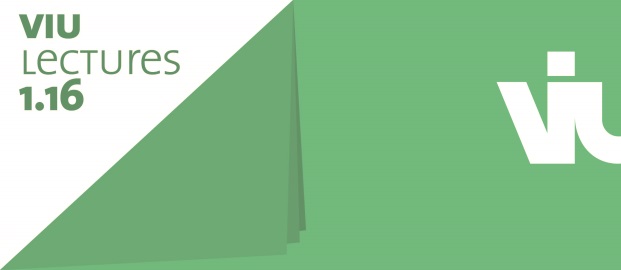
A cycle of appointments open to the public, as part of the Globalization Program
Spring 2016 term academic offer.
Wednesday, 20 April 2016
at 5 pm, room 1-G
Prof. Mounia Bennani-Chraïbi, University of Lausanne
The Arab Uprisings: a comparative analysis
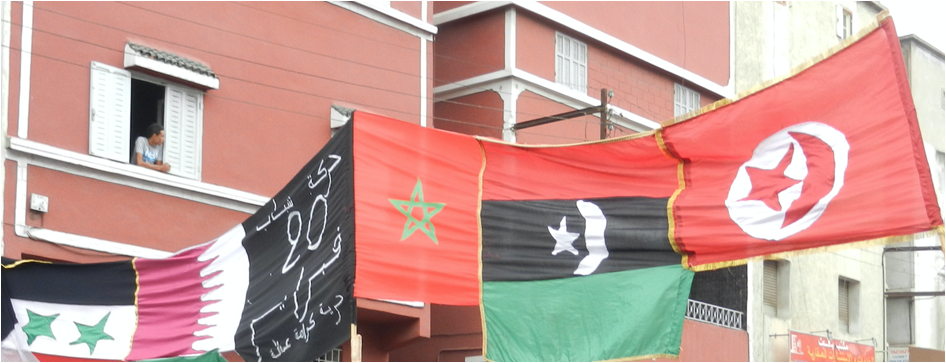
The “Arab uprisings” are far from being homogeneous phenomena. Based on a comparison between “positive cases” (Tunisia, Egypt, and Syria where a “revolutionary situation” has occurred) and a “negative case” (Morocco), we will show that the various developments these countries have known are not encoded in their “DNA”: although environmental elements have helped shaping the interactions between the protagonists involved, the blows exchanged during these "open-ended conjunctures" contributed to redefine the conditions of the local actions.
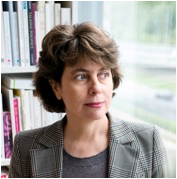 Mounia Bennani-Chraïbi is Professor of Comparative Politics at the Institute of Political, Historical and International Studies of the University of Lausanne (UNIL-IEPHI). Her research examines political behavior, politicization (notably of young city-dwellers), social movements, electoral mobilization, and associative and partisan activism in the MENA region (Middle-East, Northern Africa). Her career is driven by the desire to decompartmentalize research on the MENA region and construct bridges between separate fields of study. Personal webpage: www.unil.ch/unisciences/MouniaBennani-Chraibi
Mounia Bennani-Chraïbi is Professor of Comparative Politics at the Institute of Political, Historical and International Studies of the University of Lausanne (UNIL-IEPHI). Her research examines political behavior, politicization (notably of young city-dwellers), social movements, electoral mobilization, and associative and partisan activism in the MENA region (Middle-East, Northern Africa). Her career is driven by the desire to decompartmentalize research on the MENA region and construct bridges between separate fields of study. Personal webpage: www.unil.ch/unisciences/MouniaBennani-Chraibi
This open lecture forms a part of prof. Avanza’s course at VIU on Nationalisms in a Globalized World.
________________________________________________
Monday, 2 May 2016
at 5 pm, room 5-X
Prof. Miles Orvell, Temple University, Philadelphia
Spectacular Ruins: Photography as Cultural Narrative
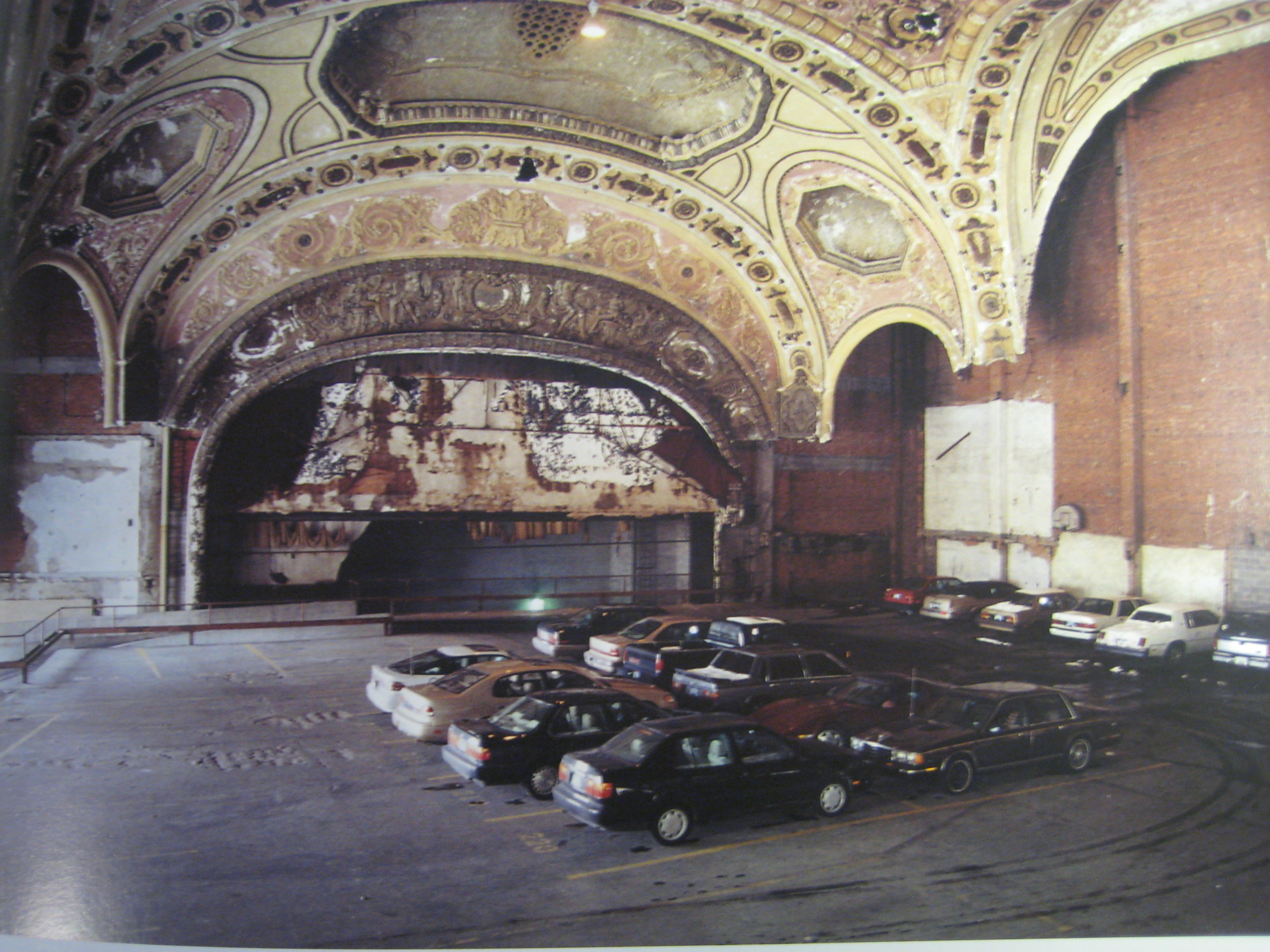
Camilo Jose Vergara, Michigan
We have one word—“ruin”—to cover a multitude of objects, all of which share the fact that they have suffered change, whether from the force of hurricanes and floods, gradual collapse, the ravages of war or the devastations of environmental waste. The concept of ruins embodies time and change, and yet we contemplate ruins as moments in time, frozen scenes of destruction. Since the mid-19th century, the camera has been the principal means by which we have seen and remembered ruins, establishing an archive of material destruction that we have taken as an objective record, even though we know that photography is not innocent of an implicit epistemology. This talk will explore the ways that photography has structured our knowledge of ruins through a discussion of a series of paradigms for thinking about ruins, paradigms that derive from photographic practices, which in turn are based on cultural narratives that have emerged historically.
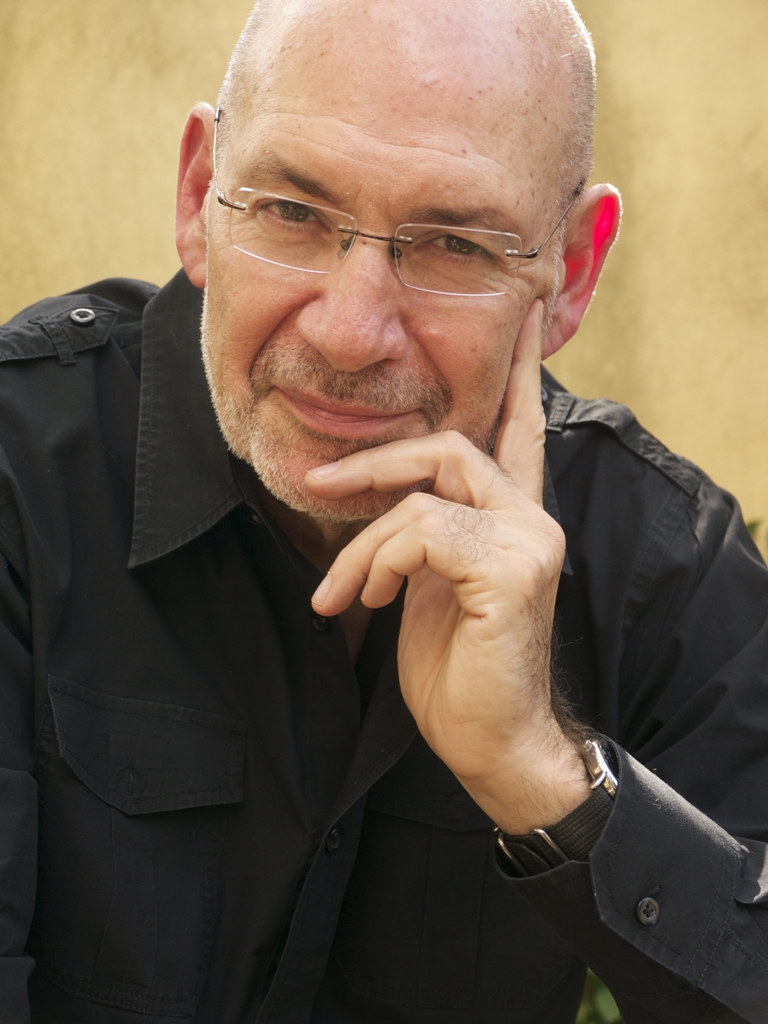 Miles Orvell is Professor of English and American studies at Temple University, Philadelphia. He is the author of the prize-winning The Real Thing: Imitation and Authenticity in American Culture, 1880-1940 (25th anniversary reprint 2014); American Photography (Oxford History of Art Series, 2003); and The Death and Life of Main Street: Small Towns in American Memory, Space, and Community (2012). Orvell has also co-edited Rethinking the American City: An International Dialogue (2013). He was Editor in Chief of the Encyclopedia of American Studies Online from 2004 to 2011, and he received the Bode-Pearson Prize for lifetime achievement, awarded by the American Studies Association (2009). Orvell is presently working on a book on photography, ruins, and contemporary culture.
Miles Orvell is Professor of English and American studies at Temple University, Philadelphia. He is the author of the prize-winning The Real Thing: Imitation and Authenticity in American Culture, 1880-1940 (25th anniversary reprint 2014); American Photography (Oxford History of Art Series, 2003); and The Death and Life of Main Street: Small Towns in American Memory, Space, and Community (2012). Orvell has also co-edited Rethinking the American City: An International Dialogue (2013). He was Editor in Chief of the Encyclopedia of American Studies Online from 2004 to 2011, and he received the Bode-Pearson Prize for lifetime achievement, awarded by the American Studies Association (2009). Orvell is presently working on a book on photography, ruins, and contemporary culture.
His talk will be accompanied by photographic slide images and it will be in English.
This open lecture forms a part of prof. Benesch's courses at VIU on Identity, Heritage and Globalization (Art in/and the City: The Urban Imagination in a Global Perspective), and The Aesthetics of Privacy: Reading and Writing under Conditions of Globalization.
ARCHIVE
2015 | 2014 | 2013 | 2012 | 2011 | 2010 | 2009 | 2008 | 2007 | 2006
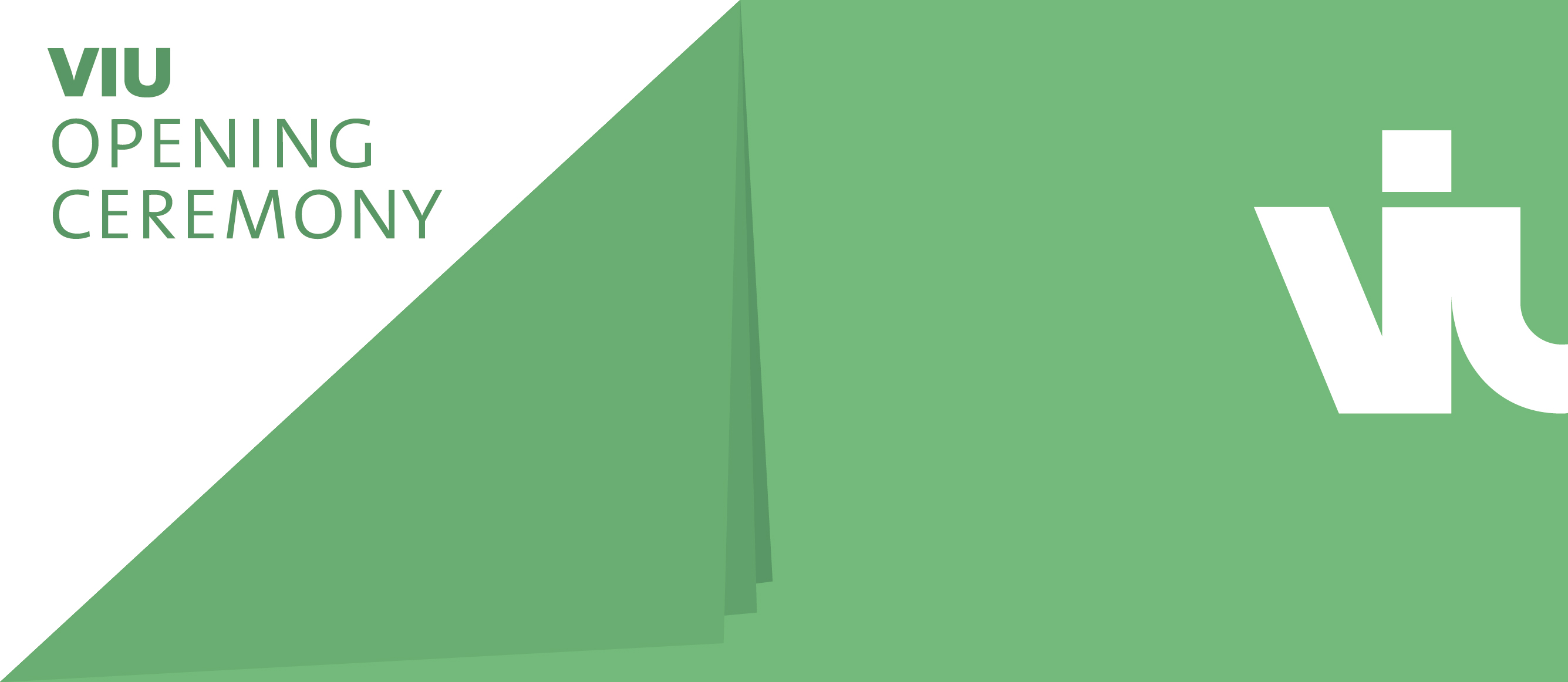
GLOBALIZATION PROGRAM
Thursday, 18 February 2016
at 4pm, Aula Magna
Opening Remarks
Amb. Umberto Vattani
President
Prof. Agar Brugiavini
Dean
Lectio Magistralis by Honored Guests
Dr. Andrea Valcalda, Head of Sustainability, Enel SpA
Professor Piero Martin, Università degli Studi di Padova
__________________________________________
Lectio Magistralis
Leading the energy transition: integrating sustainability into a “progressive” business model
Dr. Andrea Valcalda, Head of Sustainability, Enel SpA
There is a transition in place in the energy sector, driven by fast changes in technology and customers’ needs. The model of producing and distributing electricity lasted more or less the same for the past 50 years, while today many forces are “disrupting” the traditional power sector.
The “utility dilemma” is: how are today’s utilities evolving to remain competitive? Can they adapt fast enough?
Sustainability and innovation are at the heart of this transition. Both are key elements affecting the scenario, but also giving opportunities to more “progressive” companies for the redefinition of their business model, strategies and operations.
Andrea Valcalda (Genoa, 1965), graduated in H.B.Econ., is Head of Sustainability at Enel SpA where he has been working since 1996.
Dr. Valcalda held various positions in the corporate headquarters, from assistant to the President of the company, to member of the Planning and Control Department. After a year as Chief of Staff to the CEO, he was named in 2008 Vice President for Innovation and Environment, where he was responsible for defining the company’s technological roadmap and drawing up the Group’s innovation plan. Since 2013 he has been Head of Environmental Policies and Climate Change until his appointment as Head of ENEL’s Sustainability Department in 2014.
__________________________________________
Lectio Magistralis
Fusion: Energy for tomorrow, opportunities for today
Professor Piero Martin, Department of Physics and Astronomy, Università degli Studi di Padova
Bringing to earth fusion, the process that powers the sun and the stars, and harnessing it as a sustainable and clean energy source is one of the main scientific and technological challenges of the mankind. Fusion is a global effort, and scientists from the world over are working on it. Present experiments are facing this concern at its core, thanks also to the "ITER", the largest fusion device ever built. Italy has a tradition of excellence in this field of research, and is giving key contributions on fusion physics and engineering.
This lecture will review the role of fusion for a sustainable future and discuss on the present status and goals of the international research. We will also show that, in addition to its long term goal as player in the global energy arena, fusion is a big opportunity for technology development and industrial growth.
Prof. Piero Martin, physicist, is professor at the Physics and Astronomy Department of the University of Padova and Fellow of the American Physical Society. His research activity deals with plasma physics and controlled thermonuclear fusion. He is a member of the “Ateneo Veneto di Scienze, Lettere ed Arti” and of the European Physical Society.
Since 2014 Prof. Martin is Leader of the “Medium Size Tokamak Campaigns” Task Force of the European Research Consortium “Eurofusion” (Germany). Between 2007 and 2013 he has been the scientific director of the RFX-mod experiment (Padova), a research project on controlled thermonuclear fusion as a clean, renewable and broadly available energy source, operated in the framework of the Euratom-ENEA association. He chairs the “MHD, Disruptions & Control Topical Group” of the International Tokamak Physics Activity (ITPA), which provides a framework for internationally coordinated fusion research activities.
